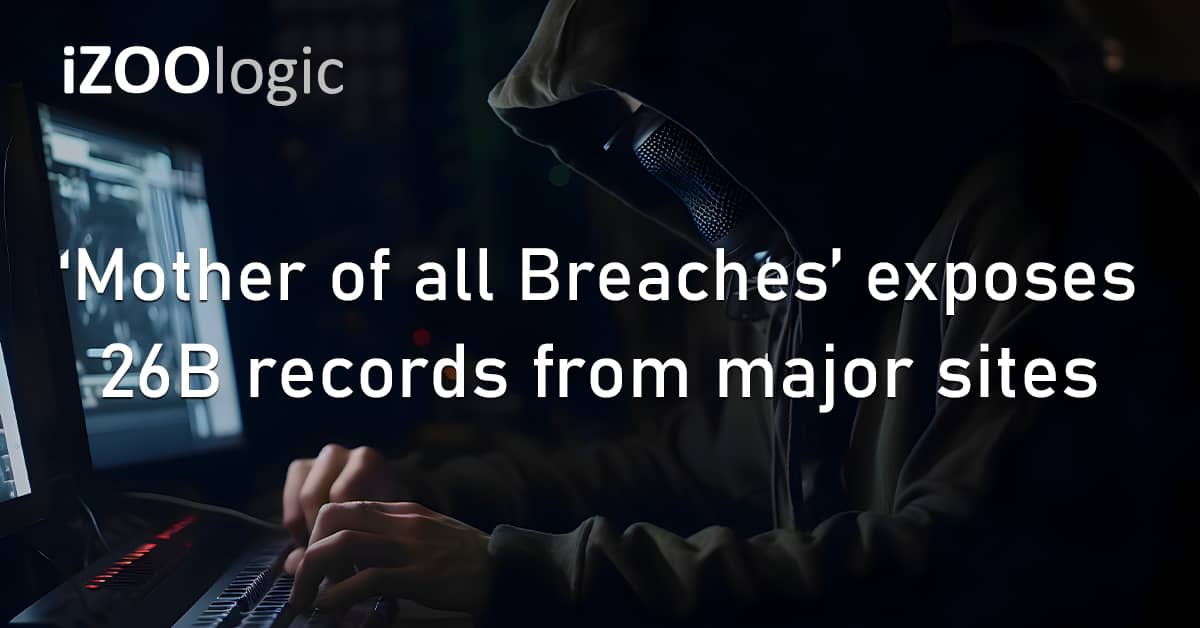Dubbed the ‘Mother of all Breaches’ (MOAB), a staggering 26 billion personal records have recently been exposed, marking what is believed to be the largest-ever data leak. The breach includes sensitive information from prominent platforms such as Twitter, Dropbox, and LinkedIn, discovered on an unsecured page, raising concerns about a potential wave of cybercrime.
The exposed data has been described as extremely dangerous, with the potential for a wide range of attacks, including identity theft, sophisticated phishing schemes, targeted cyberattacks, and unauthorised access to personal and sensitive accounts.
Among the brands with over 100 million leaked records are Tencent, Weibo, MySpace, Twitter, and LinkedIn. Tencent’s QQ, a popular Chinese messaging app, alone contributed a staggering 1.5 billion records to the breach. While some records are likely duplicates in the 12TB of data, the breach remains a significant threat due to the sensitive nature of the exposed information.
Speculations indicate that the ‘Mother of all Breaches’ might be a combination of previous security breaches.
The origin of the massive breach remains unknown, but researchers consider it a compilation of earlier breaches rather than a new incident. Although the identity of the perpetrator may never be discovered, possibilities include a malicious actor, data broker, or a service dealing with substantial amounts of data.
The dataset encompasses records from more than 20 different sites, with leaks ranging from government organisations in the US, Brazil, Germany, Philippines, Turkey, and others. LinkedIn, one of the affected platforms, is actively investigating the claims and denies evidence of a system breach.
Experts emphasise the potential for a wave of cybercrime from the ‘Mother of all Breaches’ and urge users to update their passwords immediately. With records from various platforms, cybercriminals could exploit users who reuse passwords across different accounts, gaining access to more sensitive information.
Further, users are advised to use unique passwords for each account, enable two-factor authentication, and stay vigilant against phishing emails and spam. The MOAB breach underscores the importance of limiting the sharing of personal information online to mitigate the risk of becoming a victim of cybercrime.
